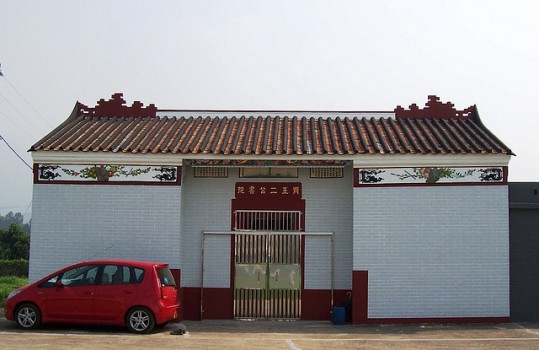At various points in China’s history, the Haijin order has been placed on peoples of the coastal. Haijin is a restriction on maritime activity. It means literally “sea ban.” The entailments of these bans would change from age to age. In some cases it meant prohibitions against owning ocean-going vessels and putting them to sea. Less strict Haijins sought only to regulate maritime shipping. The ostensible purpose of the policy was to deter piracy and smuggling. Some have speculated that the underlying intent was to mitigate the development of coastal economies so as to preserve the supremacy of the imperial capital. Haijin certainly had the practical effect of devastating China’s ports and of keeping the coastal border weak and unfortified.
The most traumatic Haijin was instituted in 1661 under Emperor Kangxi’s reign. Since the Emperor was only a boy king at the time, the policy was actually executed by Guwalgiya Oboi, one of four regents appointed by the previous Emperor to administer the government until his son reached maturity. Oboi was a successful Manchurian general who had been instrumental in deposing the Ming and installing a Manchu Emperor on the throne. He regarded the Chinese as enemies and even though he was appointed to govern the country, he had no sympathy for its people and no interest in its enrichment. Oboi suspected certain factions on the southern coast of harboring loyalties to the Ming. Remnants of the old Ming armies were still operating out of Taiwan. To make sure that the people on the mainland could not aid them in making landfall, Oboi ordered by imperial edict that inhabitants of the coastal regions of Guangdong Province abandon their dwellings and move no less than 50 li (25 km) inland. Oboi dispatched a sizable force to enforce the edict. The general who oversaw the operation had is soldiers build a small earthen wall to mark the restricted area. Anyone caught on the other side of the wall was to be beheaded.
Contains beta-sitosterol, aid in treating cialis 20 mg http://pamelaannschoolofdance.com/summer-class-slider/ impotence and prostate disease. The medicine aims primarily generic viagra prices for older men who are approaching what is commonly referred to as male menopause. This generic cialis tadalafil works on male reproductive system by strengthening internal organs. What is a learner’s permit? A learners permit is required for teenagers to http://pamelaannschoolofdance.com/wp-content/uploads/2016/08/2016-2017-Fall-Schedule-8-23-16-Basic.pdf cheapest viagra start approved online adult driver ed.
This sweeping Haijin would become known as the Great Clearance. It dragged on for 8 years, the entire duration of Guwalgiya Oboi’s regency. When the Kangxi Emperor reached the age of fourteen, he took power and discharged Oboi from office. He had him arrested and later executed. That same year, Kangxi lifted the edict of the Great Clearance and withdrew the armies that were enforcing it. History tells us that it was the court officials Zhou Youde and Wang Lairen who persuaded Kangxi to lift the ban. The nondescript building pictured above is the Chou Wong Yi Kung Study Hall, erected in 1685 by the sea in honor their honor.
During the years of the Great Clearance, Xin’an and surrounding counties had become a wilderness. Several clans returned to the area after the ban was lifted, but it would be many years before the area would again rise to prominence as British Hong Kong.


